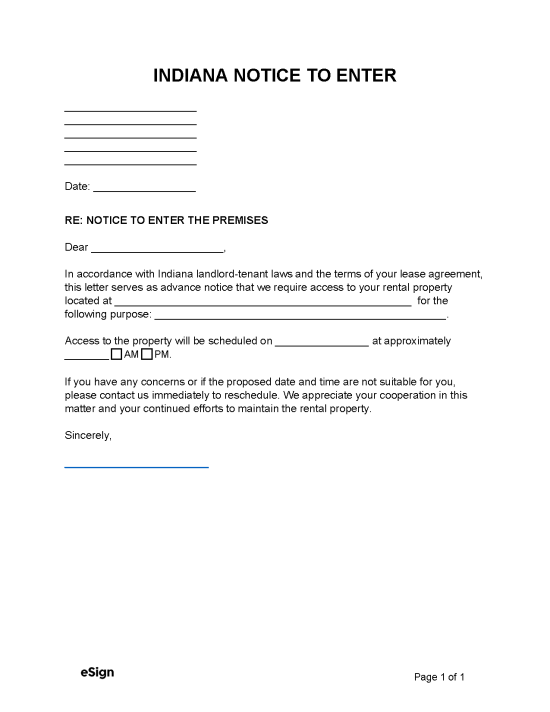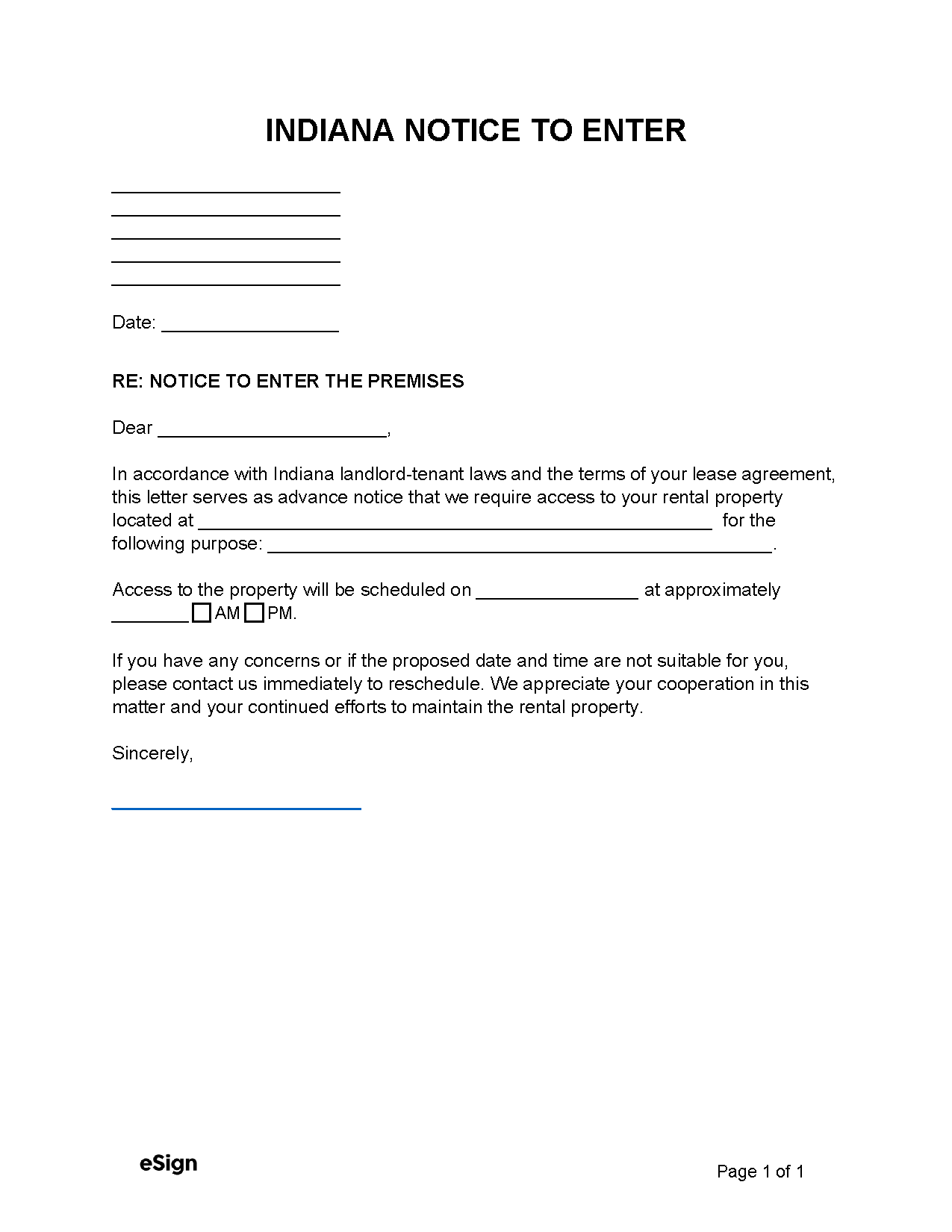Laws
The Indiana Code requires landlords to provide reasonable notice to tenants before accessing their residence, though no minimum amount of time is specified. Entries may only be made during reasonable hours, which the parties may define in the lease terms.
Statute: § 32-31-5-6(g)
Entry with Notice
The tenant must allow their landlord to access the property in order to do any of the following:
- Perform an inspection
- Make necessary or agreed-upon repairs, decorations, improvements, or supply services
- Show the premises to interested purchasers, tenants, or workers
Entry without Notice
Landlords may enter a residence without notice in the following situations:
- The tenant has abandoned or surrendered the residence
- The tenant has defaulted on rent payments
- There is an immediate danger to the tenants’ safety or the property
- The landlord has a court order

